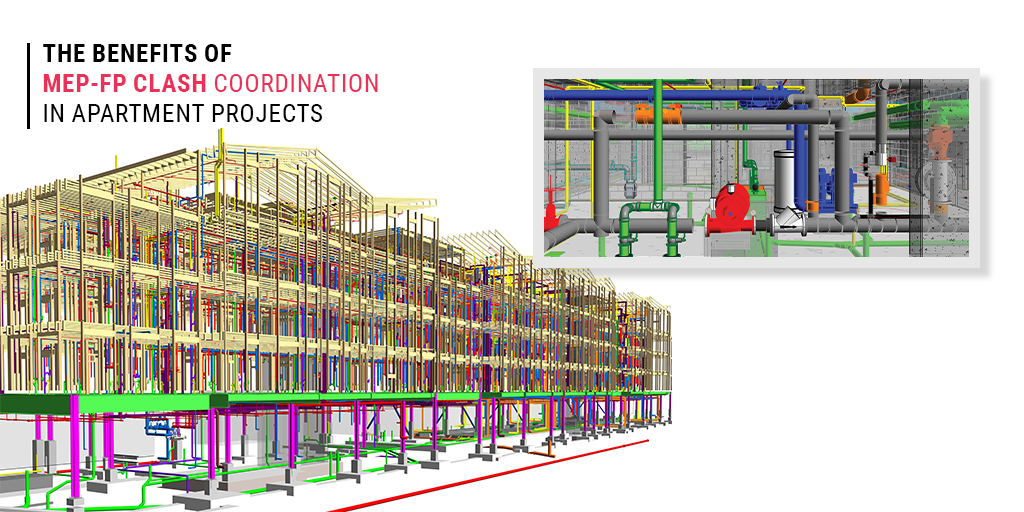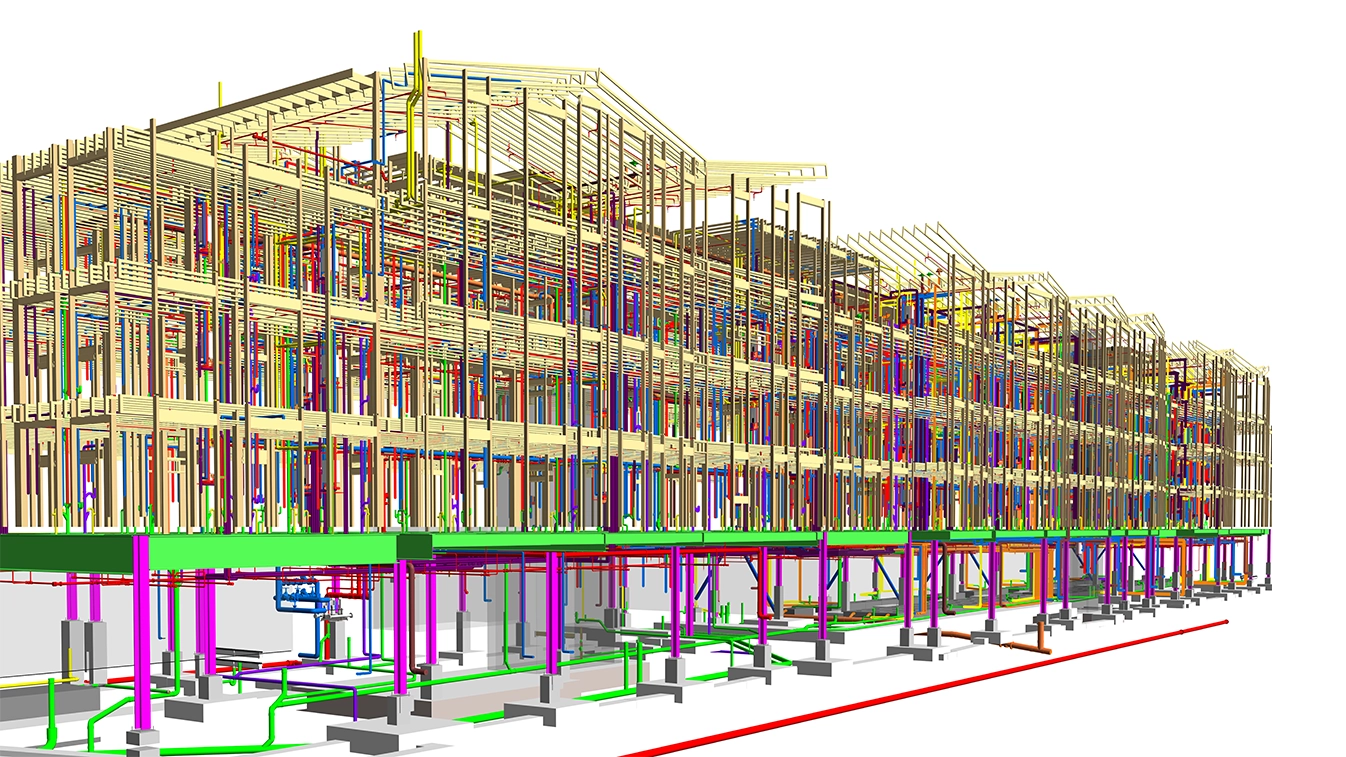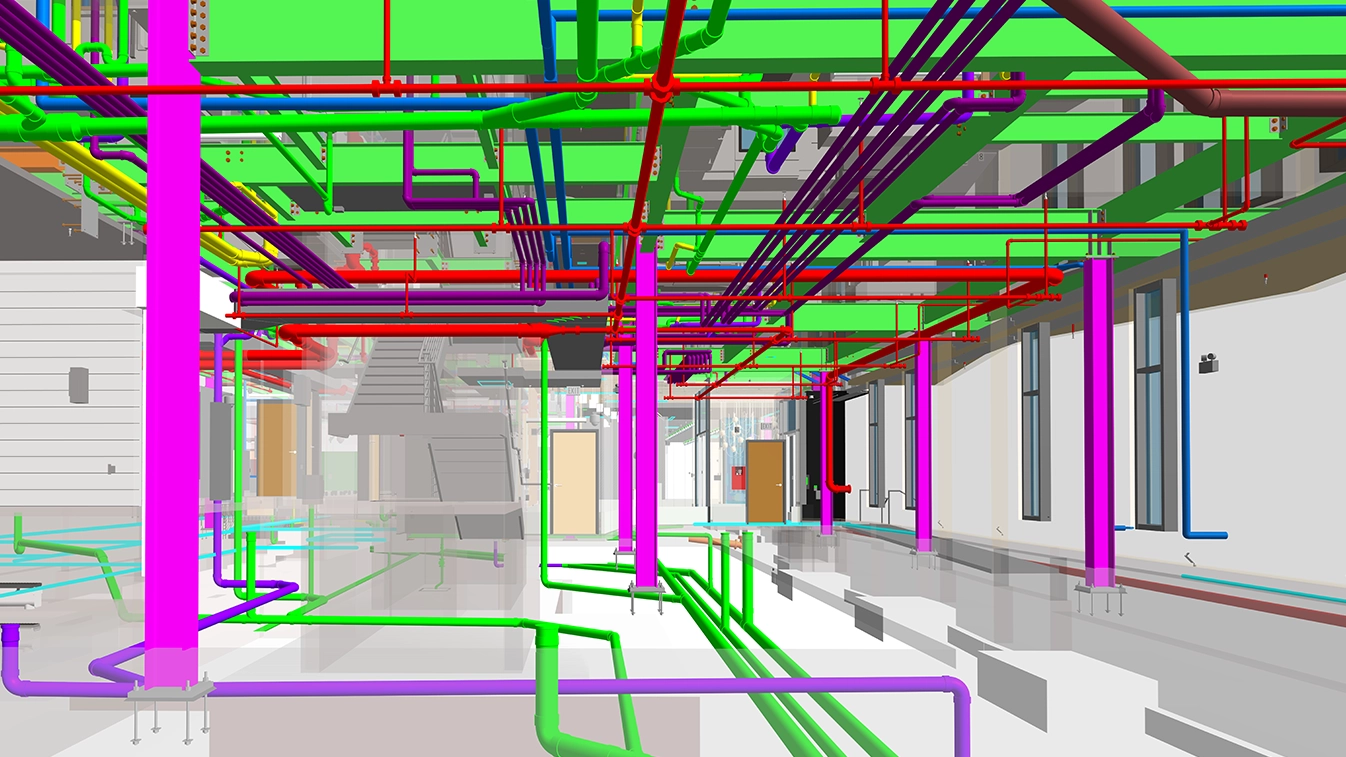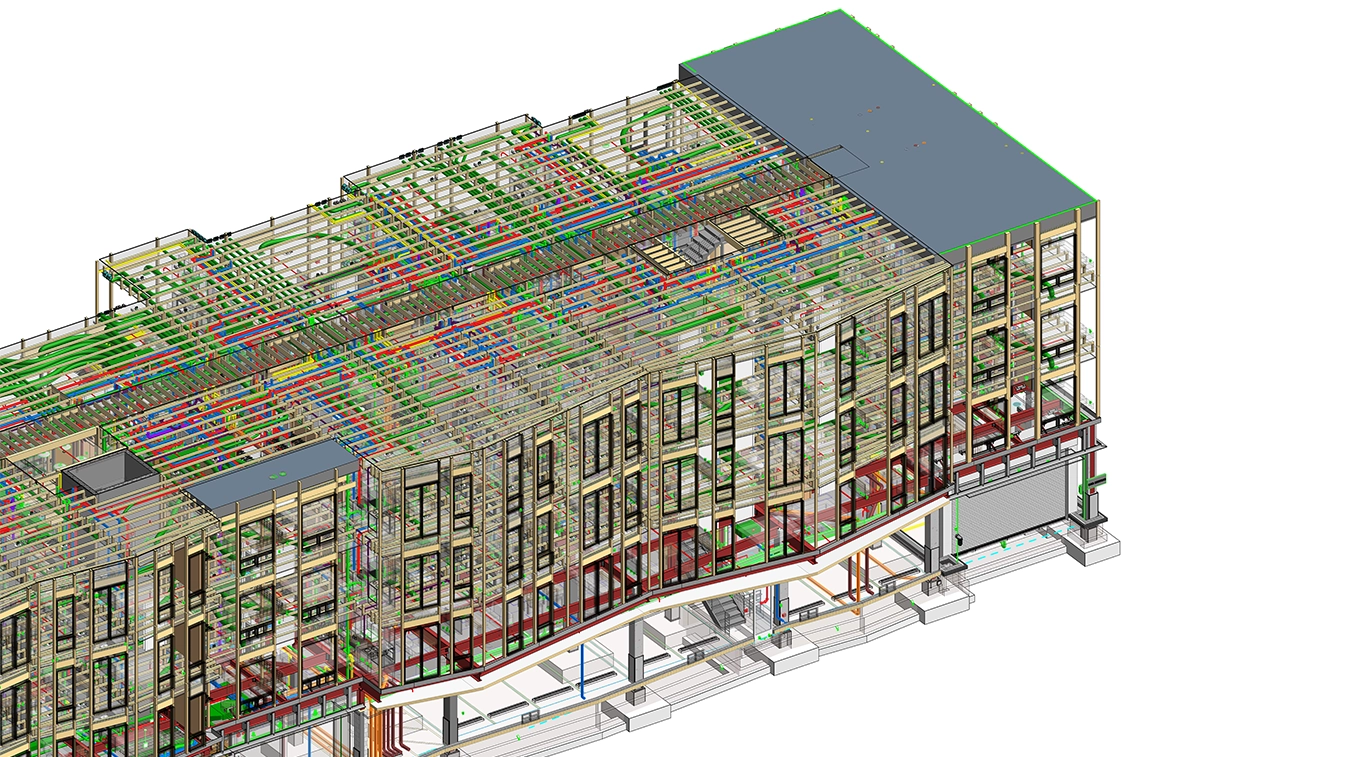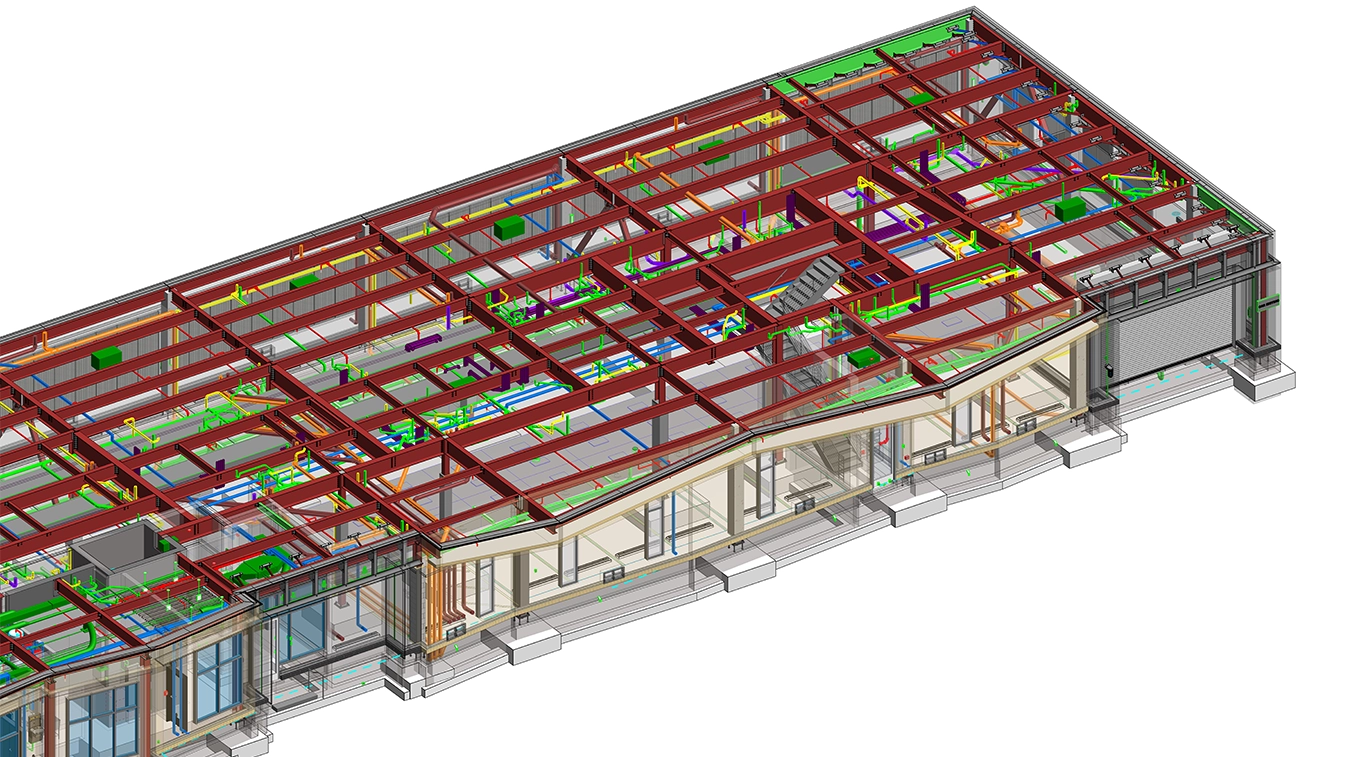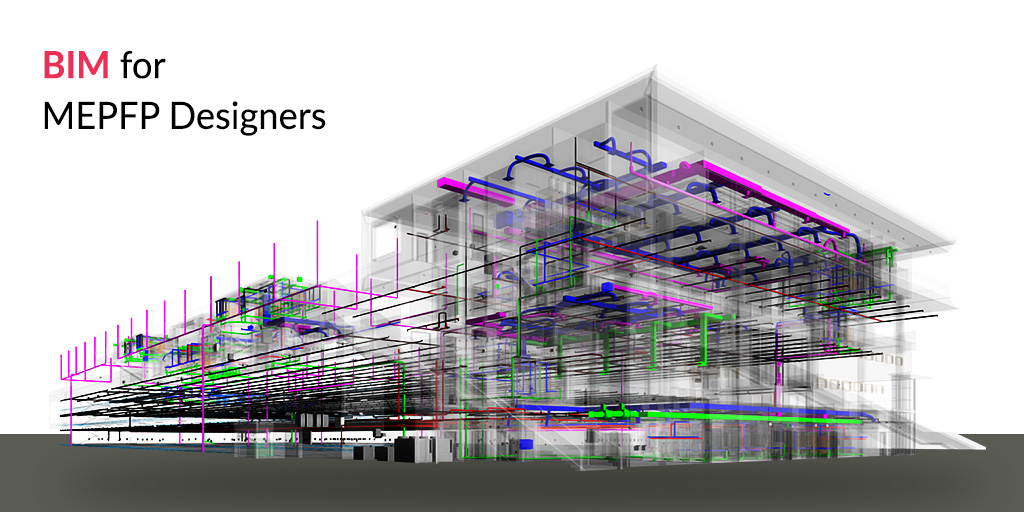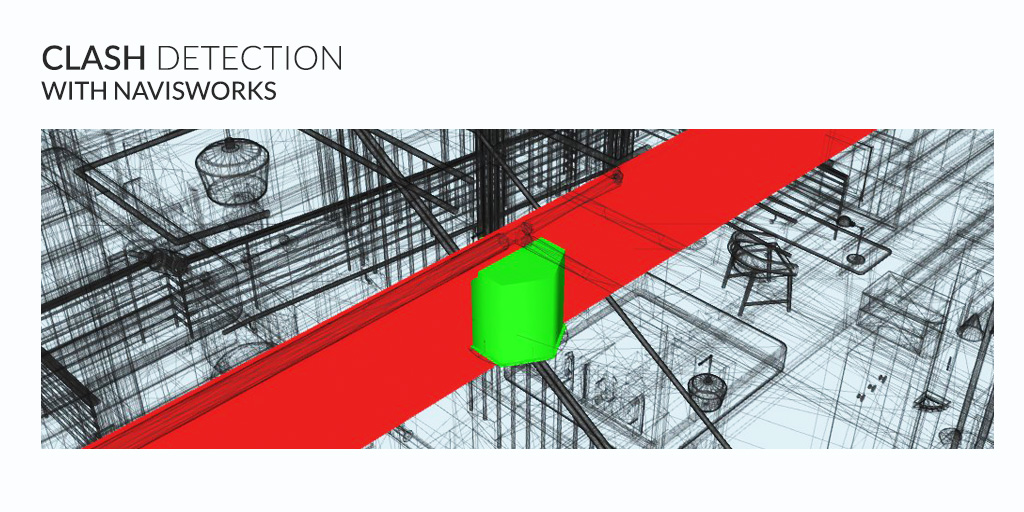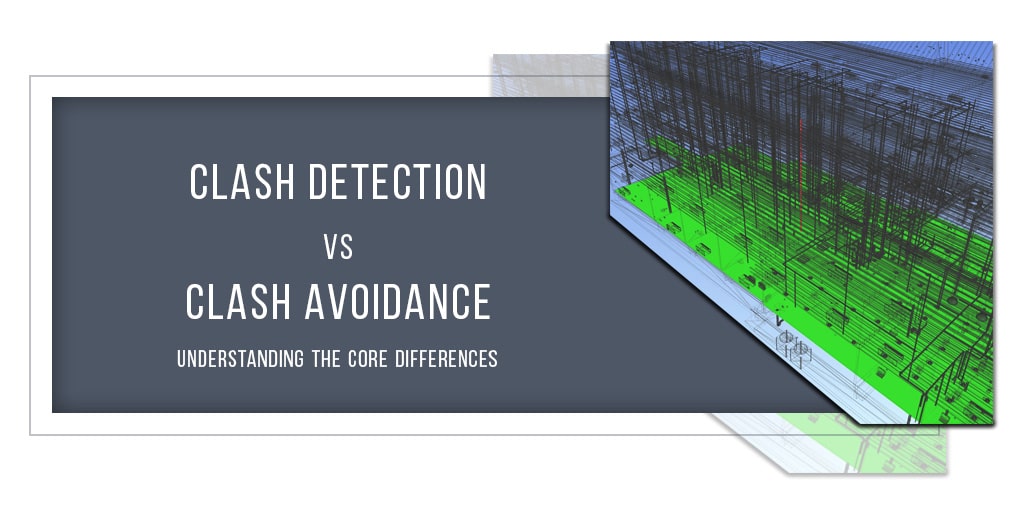Last updated on: February 19, 2025
The Benefits of MEP-FP Clash Coordination in Apartment Projects
In the realm of apartment construction, it’s crucial to make sure all the systems—Mechanical, Electrical, Plumbing and Fire Protection—work together smoothly. This coordination is known as MEP-FP (Mechanical, Electrical, Plumbing and Fire Protection) clash coordination. Essentially, it’s about making sure these systems fit together without any hitches.
In the past, this process involved a lot of painstaking manual checks and adjustments. But now, MEP-FP BIM Clash Coordination have transformed how we handle this. This advanced tech can quickly evaluate complex designs, identify clashes, and offer solutions, making the whole process much quicker and more accurate.
By using MEP-FP clash coordination, we can cut down on delays, reduce errors, and improve how well the systems integrate. This technology streamlines construction and ensures everything fits together perfectly, leading to a smoother and more successful project.
What is MEP-FP Clash Coordination?
In any construction project, multiple systems are installed simultaneously. In apartment buildings, this includes heating ventilating and air conditioning systems (Mechanical), conduits and lighting (Electrical), and water pipes and sewage lines (Plumbing). MEP-FP clash coordination involves identifying and resolving clashes between these systems before they become problems during construction.
Find the Full Explanation: Case Study – MEP-FP Clash Coordination Services for Boston Medical Center Project
This process typically uses advanced software and tools, such as Revit and Navisworks to create a detailed, 3D model showing an intradisciplinary system. The model includes all the MEP-FP systems, allowing project teams to visualize and address clashes.
United-BIM specializes in apartment projects and has leveraged its extensive experience to successfully deliver thousands of projects, demonstrating exceptional expertise in BIM services and MEP-FP clash coordination.
Advantages of MEP-FP Clash Coordination
01.
Reduces Construction Delays
One of the biggest advantages of MEP-FP clash coordination is that it helps prevent construction delays. By identifying clashes in the design phase, teams can make necessary adjustments before actual construction begins. This proactive approach avoids the need for costly and time-consuming changes during construction, which can lead to project delay.
02.
Cuts Costs
Addressing clashes early in the pre-construction phase is significantly cheaper than making changes once construction is underway. When clashes are found on-site, they often require rework, additional labor, and materials, all of which add to the overall cost of the project. MEP-FP clash coordination helps minimize these extra expenses by resolving issues before they arise.
03.
Improves SafetyOverlapping systems can create safety hazards. For example, if electrical conduit is not properly coordinated with plumbing lines, it can lead to dangerous situations such as electrical shorts or fire risks. MEP-FP clash coordination helps ensure that all systems are installed safely and according to design, reducing the risk of accidents on-site and ensuring a safer living environment for future residents.
04.
Enhances Building PerformanceProper coordination of MEP-FP systems leads to better overall building performance. When systems are well-coordinated, they operate more efficiently and effectively. For instance, well-planned HVAC systems can provide consistent and comfortable temperatures throughout the building, while well-designed plumbing systems ensure reliable water supply and drainage. This not only improves the comfort of residents but also contributes to energy efficiency and long-term operational savings.
05.
Boosts Collaboration Among TeamsMEP-FP clash coordination requires collaboration among architects, engineers, and contractors. By working together from the start, these teams can share insights and expertise, leading to better design solutions and a smoother construction process. This collaborative approach fosters a more integrated team environment and helps ensure that all aspects of the project are aligned with the overall goals.
06.
Improving Construction Quality ControlQuality control is a critical aspect of any construction project. By identifying and resolving issues in the design phase, MEP-FP clash coordination contributes to higher-quality construction. It ensures that all systems are installed correctly and function as intended, leading to fewer defects and a more sustainable building.
07.
Better facility managementFuture maintenance may be performed more quickly and easily with proper coordination. Accessing and maintaining systems is made easier for maintenance teams when they are well-planned and do not overlap. COBie data provides one of the biggest advantages for project teams with its precise location of systems and mechanical equipment. This may result in lower maintenance cost and sustainable construction.
Find More In-Depth Content: LOD for BIM Facility Management (FM) Model
MEP Clash Coordination Process:
United-BIM process of integrating Building Information Modeling (BIM) begins with the development of detailed BIM models for Mechanical, Electrical, Plumbing, and Fire Protection (MEP-FP) systems, consolidating data from all relevant disciplines. Following this, clash detection tools such as Revit are configured and utilized to identify clashes between MEP-FP systems and other building components based on construction document set. The resolution of these clashes involves collaborative efforts with engineers, architects, and other stakeholders to devise and implement solutions, resulting in a clash-free model. Throughout the project, documentation of all modifications and generation of detailed reports summarizing the clash detection and resolutions are essential. Additionally, ongoing coordination is maintained through regular updates and reviews of the BIM models, with continuous communication with project stakeholders to ensure alignment with project goals and requirements.
Conclusion
In the Architecture Engineering Construction (AEC) industry, the Mechanical, Electrical, Plumbing and Fire Protection (MEP-FP) systems of a facility can represent up to 60% of its total cost. MEP-FP clash coordination is a vital part of the construction process for apartment projects. By identifying and resolving clashes between Interdisciplinary systems early in the design, it helps reduce construction delays and costs, improve safety and building sustainability, and enhance collaboration and quality control. This proactive approach ultimately leads to a more successful project and a better living environment for future residents. For anyone involved in apartment construction, investing in MEP-FP clash coordination is a smart move that pays off in the long run.
MEP-FP Clash Coordination involves identifying and resolving conflicts between mechanical, electrical, plumbing (MEP), and fire protection (FP) systems using BIM tools. This process ensures systems fit without interference, reduces rework, minimizes delays, and improves overall project efficiency, safety, and collaboration among design and construction teams.
Reduces rework and delays by identifying conflicts early, saving costs and improving design quality. It enhances safety by preventing system interference, fosters better collaboration between project teams, and ensures accurate installation, leading to smoother construction and operation activities.
BIM software like Autodesk Revit, Navisworks, and Solibri are commonly used to detect and resolve clashes between MEP-FP systems.
Without clash coordination, projects may face significant delays, increased costs, design errors, safety risks, and lower overall project quality.
While particularly beneficial for complex, large-scale projects, MEP-FP clash coordination can be applied to any building project where multiple systems intersect or share common space.
About the Author

Coordination Manager / VDC Manager at United BIM
With over 10 years of experience in the AEC industry, Akash Patel is a seasoned Coordination Manager and VDC Manager at United BIM. His expertise lies in managing complex MEP-FP coordination projects and leveraging cutting-edge BIM technology to ensure seamless collaboration and precision. Akash is dedicated to delivering high-quality, detailed models that meet the demands of modern construction. He is passionate about optimizing workflows and driving innovation within the BIM field.
